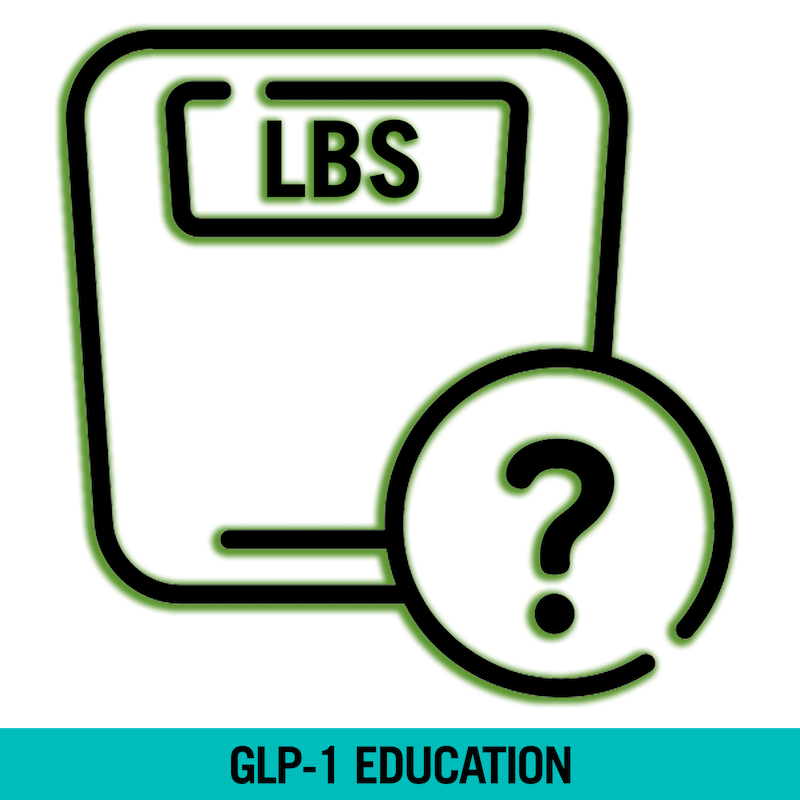
10 Sep What Happens When You Stop Using GLP-1 For Weight Loss?
For many people who have suffered from lifelong weight loss challenges, GLP-1 medications might feel like a genuine miracle. These medications, such as semaglutide and tirzepatide, have helped millions bust through stubborn weight loss barriers and achieve goals never thought possible.
However, many people tend to minimize what happens after they reach their healthy weight goal. This phase is called maintenance, and it needs to last for a lifetime. In other words, every day for the rest of their lives.
For those who achieved their weight loss goal with the help of GLP-1 medication, they have to decide what role, if any, the medication will play in the maintenance phase. Of course, this requires understanding what happens after discontinuing use of a GLP-1.
Patients Regain Weight
It may not come as a surprise that the research shows most people regain weight when they stop GLP-1 medications. When you remove GLP-1 medication from the body, you lose the chemical mechanisms that served to control appetite and slow digestion. Your body returns to its previous hunger and metabolism patterns.
One of the largest studies on this topic followed people for one year after they stopped taking semaglutide. The results showed that participants regained two-thirds of their prior weight loss within 12 months of stopping the medication.
In addition to weight regain, many health benefits related to GLP-1 medication use also reversed. Chronic conditions such as high blood pressure, high cholesterol, and blood sugar control returned to pre-treatment levels.
The Best Way to Stop GLP-1 Medications
If you explore your weight maintenance options and decide to stop taking GLP-1 medications as part of that plan, don’t do it on your own. Here’s the safest approach:
Work with Your Healthcare Provider
Never stop GLP-1 medications without consulting your doctor first. They need to monitor your health, especially if you have diabetes or other medical conditions that could be affected.
Consider Gradual Tapering
Research suggests that slowly reducing your dose over time may help prevent rapid weight regain. You had to titrate up when you started the medication, so tapering makes sense. As a general rule, many doctors recommend reducing to about half to two-thirds of your treatment dose as a maintenance approach. The exact schedule depends on your individual situation and should always be determined with medical supervision.
Pay Attention To Returning Appetite
Unlike some medications, studies show that stopping GLP-1 drugs doesn’t cause dangerous withdrawal symptoms. However, it’s important to monitor increased appetite, “food noise,” and reduced satiety to manage their impact on the number of daily calories you consume.
Healthy Lifestyle Choices
A calorie-controlled, nutrient-dense nutritional plan and consistent exercise routine should be a part of any healthy lifestyle, regardless of whether you are in the active weight loss or weight maintenance phase. It is possible to rely exclusively on lifestyle modification to maintain a healthy weight in the long term after using GLP-1 medication, but you have to feel confident in your knowledge and commitment levels to those behaviors.
Weight Management For Life
No matter what anyone says, managing a healthy weight and body in the long term requires effort. Obesity itself is a chronic disease. Constant attention is needed to keep weight in check. If you stop taking GLP-1 medications after achieving your goal and find yourself regaining, don’t be afraid to consider starting a new prescription. There is no shame in that at all. GLP-1 weight loss medication is a tool, just like a high-protein meal plan or a cardio gym class. Just speak to your doctor about your specific goals and needs so you can make the right decision for you.
